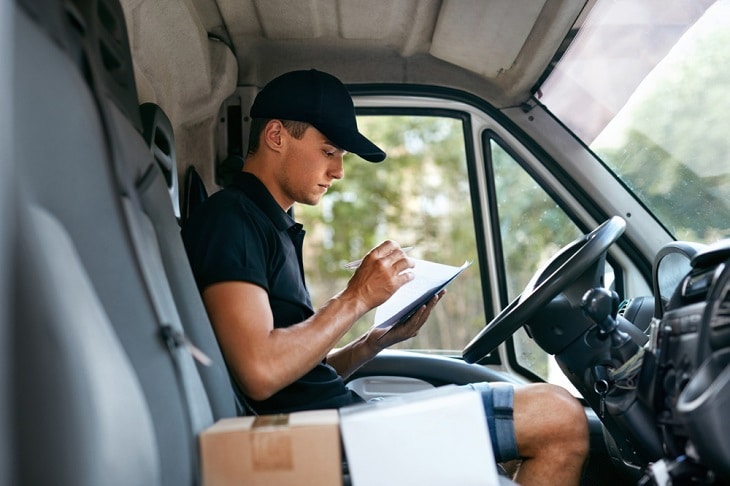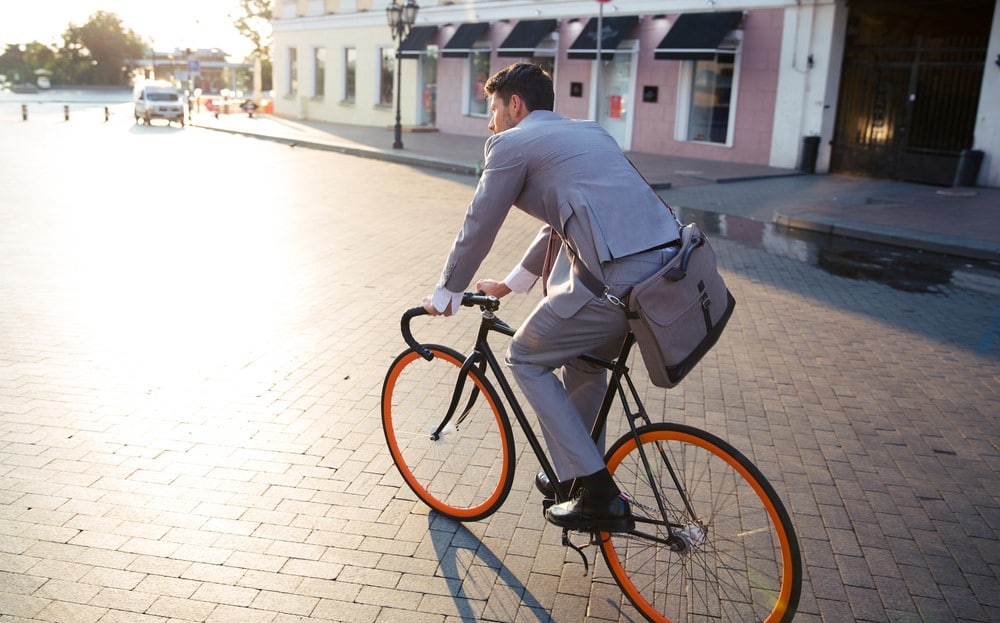Jasmine Birtles
Your money-making expert. Financial journalist, TV and radio personality.

Delivery services are booming in the coronavirus crisis. There’s a huge boom in delivery driver jobs – which means you could be making extra cash if you’ve been furloughed, made redundant, or lost self-employed work.
Everyone staying at home and all non-essential shops being closed means one thing: online shopping! From groceries to clothes, the things we normally go out and about to buy are now online-centric. Delivery drivers can barely keep up with demand – which means there’s lots of work to go around.
Here’s how to get a delivery driver job in just a few steps.
There’s one obvious thing you need for this job and that’s a driving licence. Normally, if you didn’t have one you could take an intensive driving school course and get a licence relatively quickly. However, driving instructors and test centres are closed, so at the moment only people who already have a full driving licence can apply for delivery driver jobs.
Check, too, on your vehicle restrictions. Unless you have taken your lorry licence, you’ll probably hold a Category B licence. This means you can drive an articulated goods vehicle that weighs up to 3.5 tonnes when it’s empty. If, for example, you want a job as a delivery driver for a supermarket, the small trucks they use to deliver online orders to customers can be driven on a normal Category B licence. The large lorries that haul goods to the supermarket require a special licence.
You can also ride a limited moped up to 50cc without taking your Compulsory Basic Training (CBT) if you’ve held your car licence since before February 2001. If you got your licence after February 2001, you have to complete your CBT first (which isn’t possible as all test centres are currently closed). Check your licence category here to find out what you can and can’t drive.

Many delivery driver jobs need you to use your own car. If that’s the case, you’ll need to make sure your car insurance policy is up-to-date. It must cover business purposes, rather than ‘social’ or ‘social and commuting’. If you don’t upgrade your cover and you’re in an accident, your insurance policy could be invalid and you’ll be out of pocket for repairs and legal costs.
Deliver drivers are either paid employees on a PAYE payroll system or self-employed. For example, if you’re employed by a retailer to deliver their products to customers, you’ll be a paid employee. This means you get a set salary and employee benefits like auto-enrolment into the workplace pension scheme.
If you’re a courier or a driver delivering takeaway food, it’s likely you’ll be self-employed. Self-employed drivers are usually paid per successful delivery, rather than a set wage. You may receive a basic hourly rate plus a package delivery amount, depending on the business employing you.
You’ll need to register with HMRC as self-employed and record your income and expenses on a Self Assessment tax return by the 31st January each following tax year. So, for example, if you become self-employed in May 2020, your first tax return will be due by 31st January 2022.
You can claim fuel costs and a small expense for using your personal car through your tax return if you’re a self-employed driver, or through the company’s expenses system if you’re an employee.
The first – and easiest – place to look for a delivery driver job while we’re all stuck at home is online. Try the main job boards like:
Create a separate email account for job applications, to make it easy to keep track (and avoid getting lots of spam). Write up your CV, too, and upload it to your account so that employers can find you.
You might see the same vacancies listed across several job boards. To avoid losing track of where you’ve applied, write a list of each application. This means you won’t waste time applying twice to the same role!
Online job sites are great for finding a lot of roles in one place – but you’re also competing with a lot of applicants. Make sure you also look in the local papers and in the local jobs section of sites like Gumtree, too. You’re likely to find job adverts for smaller local companies here, who don’t have a big budget to pay for an advert on the larger job websites.
If there are particular shops or restaurants in your area that you know offer a delivery service, look on their social media and website, too.
When you’re next out for your hour’s permitted exercise, or your walk to the essential shops, take note of notices in shop windows. Takeaway food outlets and restaurants who’re offering a take-out service will often put a note in their window advertising for drivers. Fewer people will see these adverts than those looking online, so you have a better chance of securing a job through one of these window notices, too.
If you want to be a delivery driver or courier, you can always go direct to companies offering these roles, too.
Try:
While some of the tasks involved in being a delivery driver depend on what you’re delivering, the main aspects remain the same. You’ll need to be in good health and fairly physically fit, as you’ll be lugging a lot of parcels around all day! If you’re working as an employee for a firm delivering large goods (such as kitchen appliances), you’ll need to be particularly strong and have the stamina to make several heavy deliveries in a day.
You’ll need to pick up your parcels from a depot and scan them all using a handheld scanner that’s provided. This sends automatic updates to customers that their parcel is now in transit and will be delivered that day. If you’re a delivery driver for large appliances or a supermarket, you may find your vehicle is already loaded when you arrive – you’ll need to check the paperwork to ensure everything’s in good order before you leave the depot.
You’ll load your vehicle with your packages and use delivery route planning software to set your route. This takes you in the most logical order to each delivery stop, to save as much time and fuel as possible. At each delivery stop, you’ll need to deliver the package or leave it in the specified place, then record the delivery as successful before moving to the next one.
You might need to return to the depot to pick up more parcels during the day, depending on the size of your vehicle and the number or size of packages you’ve got to deliver.

If you don’t have a driving licence, you can still deliver! Jobs with takeaway food outlets in your area or Deliveroo, for example, can be done on a bicycle (if you’re a fast rider!). It’s great way to keep fit while earning cash, too!
You may also find local delivery services popping up in your local area that you can do on foot. For example, local papers may need you to deliver to people’s doors because fewer readers are going to the shop to get their daily paper.
With social distancing rules in place, it’s really important to keep your health a priority even when you’re working. When you’re delivering a parcel, it’s OK to put it on the doorstep, stand back 2 metres, and wait for the recipient to open the door. Check their name, and sign your delivery pad on their behalf rather than handing it over to them. This reduces the need for contact between you and lots of people on your delivery route, helping to protect yourself and customers.
Wash your hands when you’re at the depot and keep hand sanitiser in your vehicle at all times. Wipe down your vehicle regularly with disinfectant, too, just to be on the safe side.

Some great ideas for those wishing to get involved.
Thank you!
They are so needed and appreciated especially now.